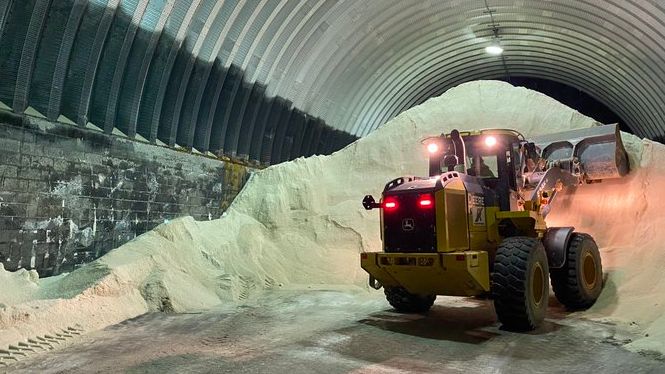Researchers say the state should take steps to reduce and fine-tune its increasing use of winter road salt, which can be harmful to ecosystems and drinking water supplies.
In a new study, the University of Maine’s Margaret Chase Smith Policy Center worked with the state Department of Transportation to analyze road salt patterns in Maine and their effects.
They found that the state used 493,000 tons of salt over the past decade, equal to 787 pounds per resident or 11 tons per road mile. Winter road clearing costs Maine $155 million — or $114 per resident — each season.
The study says the state has spent more than $5 million since 2006 resolving well claims for people whose private water supplies were rendered unusable by contamination from highways. Researchers found that 15 Maine towns had at least one well with unsafe chloride levels, potentially linked to road salt use, between 2011 and 2020.
“The report recommends that Maine develop a statewide chloride reduction plan that identifies and prioritizes salt reduction in regions with environmentally sensitive areas,” UMaine said in a press release, “as well as increasing their monitoring of chlorides in water bodies and make this information easily accessible to the public via a data dashboard.”
As the climate warms and winter weather becomes more volatile, with more winter rain and milder temperatures, the researchers said more thoughtful use of road salt will also be paramount, requiring better forecasting and coordination by the state and individual towns.
They found that days with freezing rain or snow at temperatures above freezing explained 80% of variability in road salt use, suggesting that better planning based on more detailed weather data would help crews apply salt more efficiently and consistently in warming conditions.
The study also recommended better connections between towns, environmental planners and organizations like the state municipal association, as well as more consideration of solutions used in other states, to shape and hone Maine’s salt policies.




